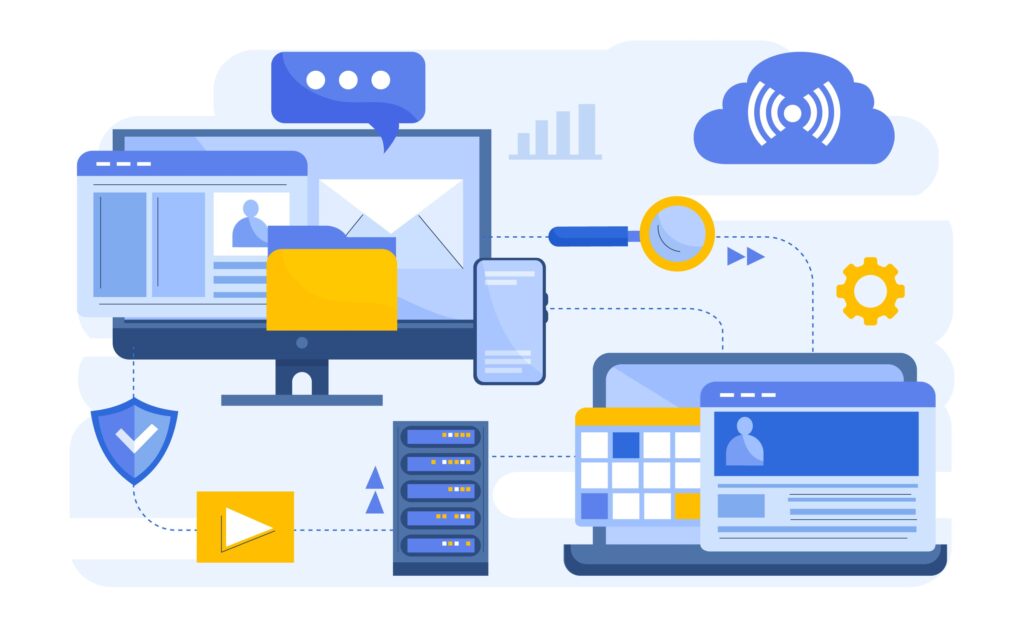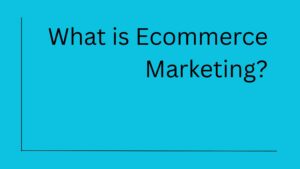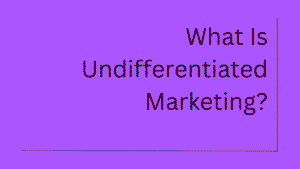Businesses of all sizes are increasingly reliant on software to keep operations running smoothly, manage various tasks, and improve productivity. From bookkeeping to team collaboration, the right software solutions can make a massive difference in helping companies achieve their goals efficiently and effectively. Whether you’re a startup trying to scale or an established enterprise optimizing existing processes, understanding the different types of business software is crucial.
But, with so many software options available on the market, it can be overwhelming to determine which tools are truly essential for your business. This guide will take a closer look at the top five types of software every business needs to succeed, provide real-world examples, and help you navigate this crucial decision-making process.
How Does Your Business Types Affect Your Software Needs?
Before diving into the specifics of the most common types of business software, it’s important to recognize that the type of business you run plays a critical role in determining which software solutions are most relevant to your needs. Business software that works for one company might not necessarily be ideal for another, depending on the nature of the business, its size, and the unique challenges it faces.
Industry-Specific Software
For many businesses, industry-specific software is a must. Different industries have distinct operational needs, which require specialized tools. For example, healthcare companies require Electronic Health Record (EHR) software to manage patient data and appointments, while a law firm may need legal practice management software to handle case files and legal documentation. By investing in industry-specific solutions, companies can streamline their workflows, comply with industry regulations, and stay competitive.
Size of Business
The size of your business also has a significant impact on the software solutions you need. Small businesses often start with basic software that addresses a few key functions, like accounting or project management, while larger enterprises typically require more complex tools like Enterprise Resource Planning (ERP) software. These larger systems are designed to integrate multiple business functions (finance, HR, inventory, etc.) across a range of departments.
Business Processes
What kind of processes are central to your business? A retail business will benefit from Point-of-Sale (POS) software to track inventory and sales, while a consulting firm might focus on project management and customer relationship management. Understanding your business’s unique processes helps in selecting software that can automate manual tasks and improve efficiency across the board.
Customer Needs
Businesses that heavily depend on customer interactions must invest in software that helps manage relationships and deliver excellent service. Customer Relationship Management (CRM) software, for instance, is essential for keeping track of customer information, communicating effectively, and fostering long-term loyalty.
Budget
Finally, your business’s budget is a key factor in deciding which software to implement. While larger enterprises may have the resources to invest in sophisticated, high-end tools, smaller businesses need to be more cost-conscious and prioritize software that offers a high return on investment at an affordable price.
A Detailed Guide to the Five Types of Software Y our Business Needs
The right software is not just a convenience; it’s a necessity for any business striving for success. Whether you’re a startup or an established enterprise, having the right tools in place can streamline your operations, enhance productivity, and provide a competitive edge. In this section, we’ll dive into the top five types of software every business should consider, backed by examples that illustrate their real-world applications.
1. Accounting Software
Accounting software is the backbone of any business’s financial management. It simplifies the process of tracking income, expenses, and other financial activities. Beyond basic bookkeeping, advanced accounting software can automate invoicing, payroll processing, and even tax calculations. This automation not only saves time but also minimizes human error, ensuring that your financial records are accurate and up-to-date.
Examples:
- QuickBooks: A favorite among small to medium-sized businesses, QuickBooks offers a range of features from basic accounting to advanced financial management. Its cloud-based platform allows access from anywhere, and it integrates seamlessly with other business tools.
- Xero: Known for its user-friendly interface, Xero is ideal for businesses that require multi-currency support and robust reporting tools. It’s particularly popular among startups due to its flexibility and scalability.
- FreshBooks: Originally designed for freelancers, FreshBooks has expanded to cater to small businesses, offering time tracking, expense management, and project management features alongside traditional accounting tools.
2. Project Management Software
Managing projects can be a complex task, especially when multiple team members and departments are involved. Project management software helps organize tasks, set deadlines, and allocate resources efficiently. By providing a centralized platform for collaboration, these tools ensure that everyone is on the same page, reducing the likelihood of miscommunication and project delays.
Examples:
- Trello: Trello’s visual approach to project management, using boards and cards, makes it easy for teams to see what needs to be done at a glance. It’s particularly effective for agile teams that need a flexible, adaptable solution.
- Asana: Asana is designed for larger teams that need to track the progress of various tasks and projects simultaneously. It offers advanced features like timeline views, task dependencies, and workload management, making it a comprehensive tool for project managers.
- Basecamp: Ideal for small teams, Basecamp combines project management with communication tools, offering message boards, to-do lists, and file sharing in one place. It’s a straightforward, no-frills option that keeps teams organized and focused.
3. Customer Relationship Management (CRM) Software
Customer Relationship Management (CRM) software is essential for managing customer interactions and fostering relationships. In a competitive market, understanding your customers’ needs and preferences can be the difference between success and failure. CRM software consolidates customer data, tracks sales interactions, and provides insights that help businesses tailor their marketing and sales efforts.
Examples:
- Salesforce: As a market leader, Salesforce offers a comprehensive CRM platform that caters to businesses of all sizes. Its extensive customization options and integration capabilities make it a powerful tool for managing complex customer relationships.
- HubSpot CRM: HubSpot’s free CRM is a great entry point for small businesses, offering robust features like contact management, email tracking, and sales pipeline visualization without the hefty price tag.
- Zoho CRM: Zoho CRM is known for its affordability and wide range of features, including automation, analytics, and social media integration. It’s a scalable solution that grows with your business.
4. Communication and Collaboration Software
Effective communication and collaboration are vital, especially in the increasingly remote work environment. Whether your team is spread across the globe or just across town, having the right tools to communicate and collaborate in real-time is crucial. Communication and collaboration software enables teams to work together efficiently, share ideas, and maintain productivity, regardless of physical location.
Examples:
- Slack: Slack has become synonymous with workplace communication. Its channels allow teams to organize conversations by project or topic, and its integration with other tools like Google Drive and Trello enhances collaboration.
- Microsoft Teams: Part of the Microsoft 365 suite, Teams combines video conferencing, chat, and file sharing in one platform. It’s particularly well-suited for organizations already using Microsoft products, providing seamless integration with Office apps.
- Google Workspace: Google Workspace (formerly G Suite) offers a suite of tools, including Gmail, Google Drive, Docs, and Meet, that facilitate communication and collaboration. It’s a go-to option for businesses looking for an all-in-one solution that’s both powerful and easy to use.
5. Cybersecurity Software
As cyber threats continue to evolve, robust cybersecurity measures are no longer optional—they’re essential. Cybersecurity software protects your business from data breaches, malware, and other cyber threats that can cause significant financial and reputational damage. From antivirus programs to comprehensive security suites, these tools safeguard your digital assets and ensure the privacy of your customers’ data.
Examples:
- Norton: Norton offers a range of security products that include antivirus, firewall, and identity protection features. It’s a trusted name in cybersecurity, providing solutions for both individuals and businesses.
- McAfee: McAfee’s enterprise solutions offer advanced threat detection and response capabilities, making it a strong choice for businesses looking to protect against sophisticated cyber threats.
- Kaspersky: Kaspersky is known for its robust malware detection and removal tools. Its business solutions offer multi-layered protection against a wide range of cyber threats, ensuring that your business stays secure in an increasingly digital world.
These five types of software are essential for every business. Accounting software helps businesses manage finances and cash flow, while project management software allows businesses to manage tasks and track progress. CRM software helps businesses improve customer interactions, and communication, and collaboration software helps teams work together effectively, and cybersecurity software protects against cyber threats.
Choosing the right software for your business is critical. It is important to identify the specific needs of your business, understand your budget, and research different software options to find the best fit. With the right software, businesses can increase productivity, streamline workflows, and deliver an exceptional customer experience.
Do You Know Which Types of Software Solution You Need?
From managing finances to tracking inventory, there are a plethora of software options available to help businesses operate more efficiently. However, with so many options, it can be challenging to determine which type of business software is right for your organization.
Identify Your Business Needs
The first step in selecting the right software for your business is to identify your specific needs. Take a close look at your business processes and determine where you could benefit from automation or improved efficiency. For example, if you spend a lot of time managing inventory manually, inventory management software could be a game-changer for your business.
Consider Your Business Size and Budget
The next step is to consider your business size and budget. Some software options may be more suitable for small businesses, while others are better suited for larger organizations with more complex needs. Additionally, some software options may come with a higher price tag than others. Consider your budget and be realistic about what you can afford.
Explore Software Options
Once you have identified your needs and budget, it’s time to explore software options. There are several software categories to consider, including accounting, project management, customer relationship management (CRM), communication and collaboration, and cybersecurity.
Choosing the Right Software for Your Business
Selecting the right software for your business is a critical decision that will impact your operations, efficiency, and bottom line. While the five categories mentioned above are essential, choose the right software within each category which may require careful consideration of your unique business needs, size, and budget.
1. Identify Your Business Needs
Before committing to any software, take a step back and assess your specific business needs. Which tasks are consuming the most time? Are there any areas that can be automated or improved with software solutions? This will help guide you toward the right tools for streamlining processes and increasing efficiency.
2. Consider Your Business Size and Budget
If you’re a small business, you may not need all the advanced features of enterprise-level software, and budget constraints may limit your choices. However, as your business grows, consider how scalable the software is—will it be able to handle the increased demands?
3. Explore Different Software Options
Take the time to explore different software options and evaluate the features, pricing, and reviews of each. Free trials, demos, and consultations with software providers can also help you assess whether a solution meets your needs.
4. Make an Informed Decision
By considering your needs, size, budget, and the software options available, you’ll be able to make a more informed decision. Ensure that the software you choose is user-friendly, integrates well with your existing systems, and is backed by strong customer support.
Conclusion
The right software can make a significant difference in the productivity, efficiency, and success of your business. Whether it’s managing finances, tracking projects, improving customer relationships, enabling collaboration, or protecting against cyber threats, the software solutions you choose should be tailored to your business’s unique needs. By understanding the five essential types of software—accounting, project management, CRM, communication/collaboration, and cybersecurity—and carefully selecting the right tools for your business, you can position your company for long-term success in the competitive marketplace.






8 thoughts on “Top 5 Types of Software Every Business Needs with Examples”
We are a group of developers looking for a better tech community to join. Your site offered us with useful info to work on. You’ve performed an impressive job and our entire group will probably be grateful to you. Thanks!
Can you be more specific about the software in your article? After reading it, I still have some doubts. Hope you can help me.
Hello admin,
Indeed, it’s easy to write something that doesn’t resonate with the readers, but what takes the best effort is putting and articulating things that the audience loves. You’re doing it. Keep going with it.
Hello! Thanks for such a beautiful blog! Have the same flow everywhere you write, since the way you put things about software is amazing. Continue cultivating your expertise in all sort with love.
Hi there! Just wanted stopping in to praise your amazing blog. Your expertise on software are really inspiring. Your blog is a precious resource for those curious about types of software. Keep on the excellent work!
I don’t think the title of your article matches the content, lol. Just kidding, mainly because I had some doubts after reading the article.
Do I have a few more examples to view to compare them with each other within the site? I hope you would.
Hi team! I truly appreciate how this article simplifies a complex subject into easily digestible pieces. The way it presents different software types in simple, everyday language is truly beneficial and engaging for a wide audience who may not have technical expertise.